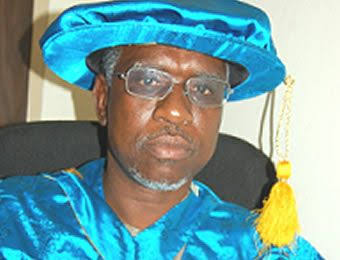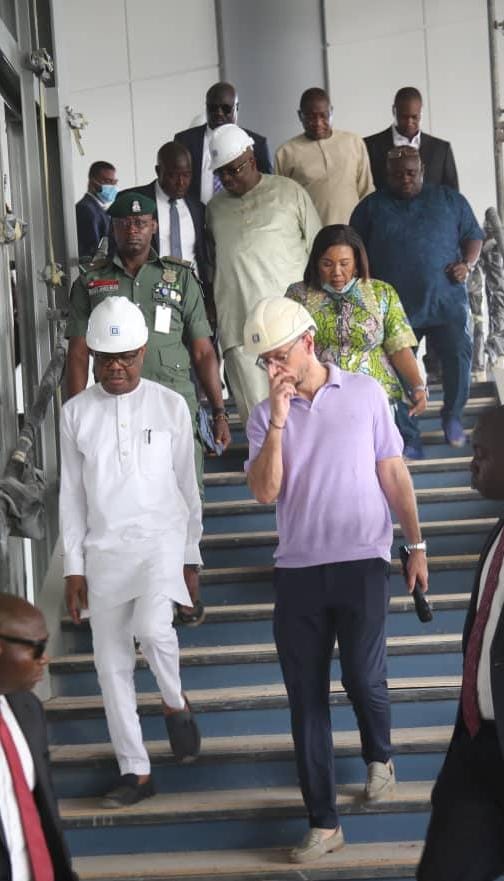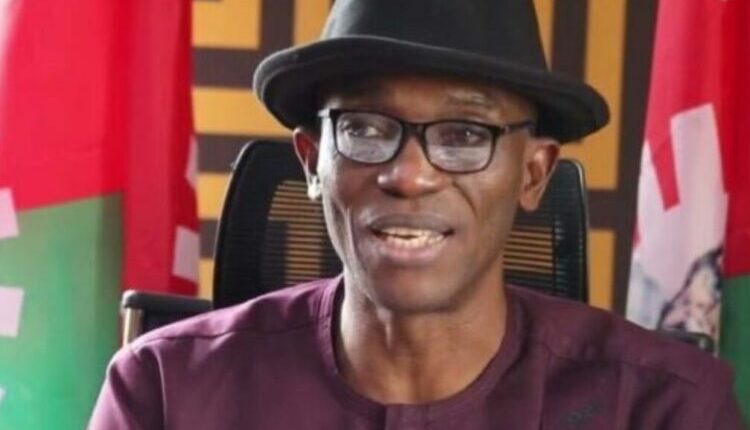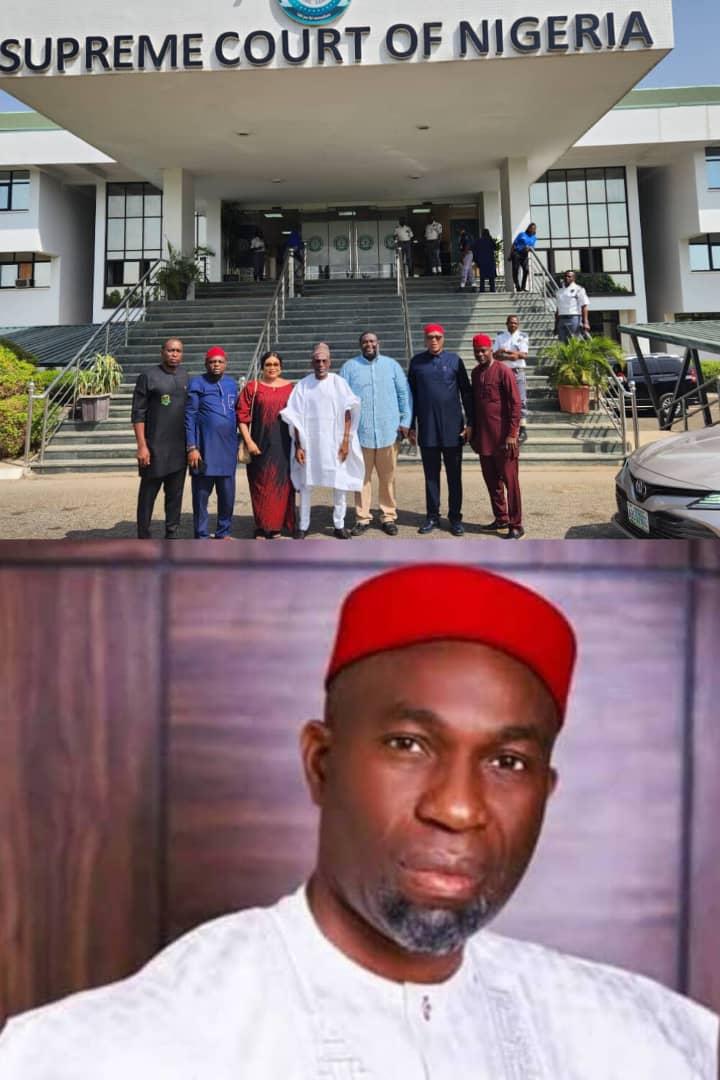News
Experts advocate true University autonomy to tackle challenges of higher education in Africa

Experts in the education sector have called for true University autonomy as one of the solutions to tackle the challenges facing higher education in Africa.

This was at an international symposium convened to mark the birthday of Professor Abubakar Adamu Rasheed, the Executive Secretary of the National Universities Commission (NUC) on Wednesday.

They agreed that African higher education is confronted with a host of grand challenges that must be tackled to ensure the attainment of the Sustainable Development Goals (SDGs) and the African Union Agenda 2063.
Over 160 higher education experts from 14 countries attended the virtual event organized by the Okebukola Science Foundation in partnership with NUC Strategy Advisory Committee (STRADVCOM), the Africa Progress Group (APG), the Office of the AAU Ambassador for West Africa, National Open University of Nigeria (NOUN) and the Virtual Institute for Capacity Building in Higher Education (VICBHE)
Lead speakers at the symposium on the theme ““Grand Challenges Facing University Education in Africa: Taming the Dragon: were Professor Peter Okebukola (moderator); Professor Gibril Jaw, Executive Secretary, National Accreditation and Quality Assurance Authority of The Gambia; Professor Juma Shabani, Chairman, National Commission for Higher Education of Burundi; Professor Dr. Youhansen Eid, President, National Authority for Quality Assurance in Education of Egypt; Professor Emeritus Nimi Briggs, Chairman, Committee of Pro-Chancellors of Federal Universities; Professor Elizabeth Sarange Abenga, Director of Pan African University Institute of Governance, Humanities and Social Sciences (PAUGHSS), in Cameroon; Professor Olusola Oyewole, Secretary General, Association of African Universities and an Australian
The special guests of honour were Professor Ruqayyatu Ahmed Rufa’i, former Honourable Minister of Education and Professor Laraba Gambo Abdullahi, former Vice-Chancellor, University of Abuja and former Honourable Minister of Women Affairs.
Twelve grand challenges were agreed as inhibiting quality delivery of university Education in Africa.
These are the absence of true University autonomy; depreciating quality of higher education teachers; research capacity deficit; use of outdated teaching methods and slow adoption of ICT for delivering quality university education; capacity deficit of quality assurance agencies; infrastructural/facilities inadequacies in the midst of massification of higher education institutions; management inefficiencies; poor quality of entrants into higher education from the secondary level; curriculum irrelevance- academic programmes not aligned to labour market needs; weak regional integration and language barriers; absence of an African Credit Transfer Scheme – hindering comparability of certificates and diplomas, mobility; and poor welfare scheme leading to low morale and low motivation of university staff.
Significant attention was paid in the discussions to proffer solutions to these challenges. The speakers and participants agreed that the solutions rest with all stakeholders and not shifting the burden to the government alone. They agreed that parents, students, teachers and other staff in the university, university managers, regulatory agencies, the private sector, the media, development partners, community leaders, religious leaders, political elites and actors, indeed all beneficiaries of the products of the university system have roles to play in taming the dragon of the challenges.
Specifically, the participants called for the granting of true autonomy to Urniversities which is driven by the universities being less dependent on government for funding; strengthening teaching and research capacity of academic staff through the implementation of intensive and sustained training programmes like those offered by VICBHE; improved resourcing of facilities for teaching and research to ensure that African universities shift from being glorified secondary schools to matching their counterparts in the developed world; improving the relevance of the curriculum (curriculum re-engineering) to enable it produce nationally and regionally-relevant and globally competitive graduates; improving the delivery of basic education so that entrants into universities are of better quality; political commitment to regional integration for south-south collaboration; development of an African Credit Transfer Scheme (ACTS); speedy establishment of the Pan African Quality Assurance and Accreditation Agency (PAQAA); and improvement in the welfare of university staff.
There was agreement among participants on the introduction of blended learning to reduce space constraints, strengthening of intra-African collaboration and compulsory teacher training programme for all teachers in higher education.
Participants further stressed that there should be an increase in the sources of financial inflow into universities and that these should include the payment of tuition fees that are adjusted to the course of studies with bursaries and scholarships for indigent students.
Furthermore, they urged that universities should be more proactive in exploring other avenues of securing funds that are open to higher educational institutions – grants, endowments, consultancies, research – and should reduce their over-dependence on government funding.
Additionally, governments should hold universities to account to source for aspects of their funding requirements. Governments should allow university managements and governing councils to be totally responsible for the running of the affairs of universities including hiring and firing of staff and the payment of differential salaries, where necessary, within clearly stipulated government guidelines. Public universities should be allowed to deploy their resources by themselves and as they deem fit to establish facilities for teaching, learning, research and innovation within their areas of interest, competence and specialization.
Lastly, participants were in agreement on the need to tighten the recruitment process, especially for the teaching staff so as to hire only bright and committed staff who should be appropriately remunerated to retain such staff and avoid brain drain.
Professor Abubakar Adamu Rasheed was celebrated at the event for his creativity and inovativeness in triggering the Rasheed Revolution in the Nigerian and African higher education systems.

News
Collapse rumours diversionary, but undeterred – Wike

The Honourable Minister of the Federal Capital Territory (FCT), Barr. Ezenwo Nyesom Wike, has dismissed as baseless and diversionary, widespread rumours about his collapse and being rushed abroad for treatment.

Speaking to journalists in Abuja on Thursday, following a routine inspection of ongoing infrastructure projects slated for commissioning in May to commemorate President Bola Ahmed Tinubu’s second anniversary in office, Barrister Wike categorically denied the claims, saying that they were untrue.

He attributed the spread of these rumours to political machinations, specifically pointing to those he alleged, sought to divert attention from serious allegations of planned attacks on national assets, including the Rivers State House of Assembly complex as revealed by a former Head of Service of Rivers State government.
He said, “What happened was that the former Head of Service of Rivers State government came out to let the public know what was going on about a plan to bomb the House of Assembly complex and attack national assets. To divert the attention of people from focusing on that, they had to bring up rumours that I had been flown overseas. There was never a time I collapsed, there was never a time anybody took me overseas”.
The Minister said he was focused on his job of providing good governance in the FCT and would not be distracted by such unfounded rumours.
Barr. Wike emphasized his continued public engagements, citing his presence at the President’s Iftar engagement and his leading of Abuja residents during the Sallah homage to the President as evidence of his robust health. “You see me every day. The day Mr. President broke Iftar during his birthday, I was there. The next day, I led Abuja residents to pay Sallah homage. I see so many stories online, this is politics. Those things don’t bother us. We are not distracted. We are focused on our jobs.”
He thanked Nigerians for their concern but cautioned against wishing ill health on others, reiterating that only God determines the time of one’s passing. “I thank Nigerians for showing concern, but people should not wish their fellow human beings such a thing to happen. We know that we will die one day, nobody will remain in this world forever, but it’s only God who determines the day you will die. No human being can say you will die today or tomorrow. So, don’t bother yourself, I’m very agile and I can assure you that I will write the condolence letters for those peddling these rumours.”
Speaking on the infrastructure projects he inspected, Barr. Wike expressed satisfaction with the progress of work at the International Conference Centre (ICC) renovation, the Arterial road N16 in Gishiri and its interchange connecting Maitama District to Katampe, and the Judges Quarters and its access roads in Katampe District.
He said, “We were at the International Conference Centre where much work has been done. They are keeping to the time that they have given and they are also doing a good quality job. We’ve gone to Gishiri and the roads leading to the Justices Quarters. I’m very much impressed with the good jobs and the contractors handling these projects. You can attest to the fact that this is a quality job being carried out”.
He commended the contractors, including Julius Berger and CGC, for their commitment to delivering the projects on schedule and assured that funding, with the support of President Tinubu, was not a challenge.
He encouraged taxpayers to fulfill their obligations, promising that they will witness the tangible results of their contributions. “All we will say is that those who are supposed to pay their taxes should pay their taxes, and ask us what we are doing with taxpayers’ money. They can see what we are doing with taxpayers’ money.”

News
Supreme Court sacks Abure, says leadership is party affair

The Supreme Court has sacked Julius Abure as National Chairman of the Labour Party in a ruling that was delivered on Friday in Abuja.

The judgment has put paid to a prolonged legal battle of the party. In a unanimous judgment, In a delivered by a five-member panel, held that the Court of Appeal had overstepped its jurisdiction when it declared Abure as the party’s leader.

The Supreme Court ruled that the issue of party leadership is an internal affair beyond the jurisdiction of the courts, thereby overturning the lower court’s ruling. This decision has significant implications for the Labour Party, which has been embroiled in leadership tussles in recent months.
The judgment came after an appeal filed by Senator Nenadi Usman and another appellant, challenging Abure’s claim to the chairmanship. The court found their appeal meritorious and accordingly upheld it, solidifying the legal stance that party leadership disputes should be settled within party structures rather than through litigation.
In a further blow to Abure’s camp, the Supreme Court dismissed a cross-appeal filed by his faction of the Labour Party, describing it as lacking merit.
With this ruling, the legal battles surrounding the leadership of the Labour Party may have reached their final chapter, barring any internal resolutions or new legal maneuvers by the affected parties.
The verdict has sparked reactions from political analysts and party stakeholders, with some expressing concerns over the stability of the Labour Party ahead of the next electoral cycle. The party, which emerged as a formidable force in the 2023 general elections, now faces the challenge of reorganizing its leadership and uniting its members.
While the ruling may settle the legal aspect of the dispute, the political ramifications are far from over.
Party members and loyalists of Abure may seek internal resolutions or political realignments to navigate the fallout of this decision. The Labour Party’s next steps will be crucial in determining its future strength and cohesion on the national stage.
As of press time, Abure’s camp has not issued an official statement on the ruling, while other factions within the party have welcomed the decision, calling it a victory for internal democracy.

News
Supreme Court Verdict: A Triumph for democracy, unity of Nigeria – LP NCC

In a landmark ruling today, the Supreme Court of Nigeria delivered a judgment that has been hailed as a significant victory not only for the Labour Party (LP) but also for Nigeria’s democracy. The ruling, which saw the removal of Mr. Julius Abure as the National Chairman of the Labour Party, is widely regarded as a triumph of democracy, the rule of law, and the resilience of Nigeria’s judicial system.

The statement celebrating the historic judgment was issued by the Labour Party National Caretaker Committee Secretary, Sen. Darlington Nwokocha who was present at the Supreme Court in Abuja during the judgment. The Secretary expressed immense gratitude to the Justices of the Supreme Court for their fair and forthright decision, which was described as a beacon of hope for the country’s democracy.

“This ruling is a monumental victory for the Labour Party and, more importantly, for the future of Nigeria’s democracy,” said the Secretary. “It demonstrates that the Judiciary remains the last hope for the common man, ensuring that justice and the rule of law prevail in the face of challenges.”
The Labour Party National Caretaker Committee (LP NCC) emphasized that the judgment is a clear indication that despite the struggles Nigeria faces, the nation’s democracy is resilient, and the judicial system remains a pillar of strength. It is also seen as a crucial step towards unifying the party and fostering an environment conducive to political reform and nation-building.
“This historic ruling is not only a victory for the Labour Party, but also for the Nigerian people and our democracy. It affirms that the rule of law will always be upheld,” the statement continued. “We now have an opportunity to rebuild Nigeria’s democracy and strengthen our party, which remains the political party of choice for millions of Nigerians.”
The Labour Party extended a call to all Nigerians, irrespective of political affiliation, to unite with the party in its efforts to restore and rebuild the nation’s democracy. “We call on all Nigerians to join hands with the Labour Party in the mission to restore the true values of democracy, justice, and equity in Nigeria,” the statement urged.
The judgment is being seen as a significant milestone not only for the Labour Party but for the entire nation, as it underscores the importance of a free, fair, and independent judiciary in maintaining democratic principles. The ruling have now firmly brought to an end the perennial leadership crisis within the Labour Party, enabling it to focus more effectively on its agenda for a better Nigeria.
The Labour Party also took this moment to express their deep appreciation to their supporters for their unwavering dedication and solidarity. “We thank Nigerians for their resilience, support, and trust in our cause. The Labour Party remains the people’s party, and together, we will continue to fight for a more just, equitable, and prosperous Nigeria,” the Secretary concluded.
As the Labour Party moves forward, it is committed to uniting its members and supporters to build a Nigeria free from oppression, where justice and fairness are upheld for all. The Supreme Court’s ruling today serves as a powerful reminder that in Nigeria, the law is supreme, and democracy will always triumph.

-

 Security6 days ago
Security6 days agoNew Commissioner of Police in Niger, Elleman sends strong warning to criminals
-

 News5 days ago
News5 days agoAbia: LG Chairman, Iheke accused of using soldiers to detain IRS agent, claims Governor Otti’s support
-

 News6 days ago
News6 days agoKogi Governor, Ahmed Usman Ododo salutes Tinubu at 74
-

 News4 days ago
News4 days agoKogi government bans rallies ahead of Natasha’s homecoming slated for Tuesday
-

 News6 days ago
News6 days agoPlateau LP stakeholders endorses Barr Gyang Zi’s defection to APC
-

 News4 days ago
News4 days agoIran may secure a deal before Trump’s deadline – or face Israeli strikes in Tehran – analysis
-

 News6 days ago
News6 days agoAkpabio pays historic visit to office of SA to President on Senate Matters
-

 Business6 days ago
Business6 days agoFCT Minister reveals how he would aggressively pursue revenue collection, tours infrastructure





















